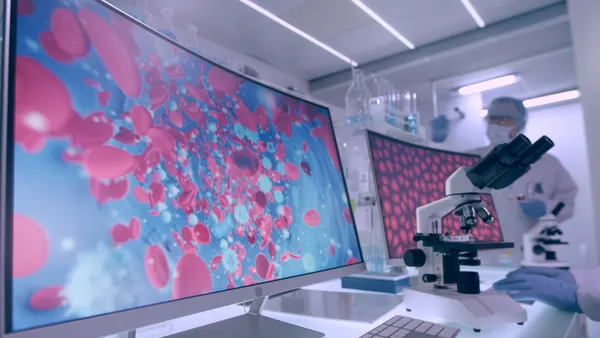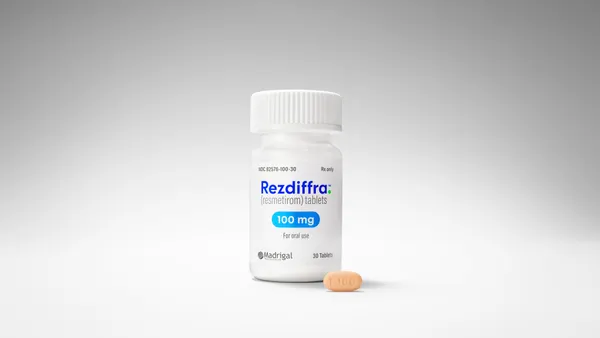ISB and IBM launch Human Proteome Folding Project on World Community Grid The Institute for Systems Biology (ISB), in partnership with IBM, United Devices, and the University of Washington, has launched the Human Proteome Folding Project on World Community Grid. This project, the first to run on the grid, will help predict the shape of human proteins and further efforts toward predictive, preventive, and personalized medicine. Leveraging the computational power of millions of computers, scientists will predict the shape of human proteins that researchers currently know little about. From these predicted shapes scientists hope to learn about the function of these proteins, as the shape of proteins is inherently related to how they function in bodies. Researchers hope to gain a better understanding about the causes and potential cures for diseases such as cancer, AIDS, and tuberculosis. “Now that the human genome has been sequenced, the next critical phase in genomics research is to do as much as we can to understand protein functions,” says Dr. Rich Bonneau, ISB lead scientist on the project. “This database of protein structures and possible functions will let us take those next steps in understanding how diseases that involve these proteins work.” Systems biology requires the integration of cutting-edge biology, technology, computation, and medicine. The World Community Grid, sponsored by IBM, will enable ISB’s researchers to process unprecedented quantities of data, thus furthering its efforts in studying and applying systems biology to the fundamental challenges in biology and medicine. “We are truly excited to partner with IBM on this project,” says Leroy Hood, M.D., Ph.D., president of ISB. “I applaud IBM for its visionary approach in establishing World Community Grid and am convinced that the enormous computational power the company is providing in cooperation with United Devices will lead to unprecedented results in our ability to understand this next critical phase in genomics research.” The Human Proteome project running on World Community Grid will split the problem of folding the human proteome into millions of smaller problems called work units. Each volunteer will download a small program that will then periodically contact the central server to get its next work unit. “World Community Grid represents a new model for philanthropic giving,” says Linda Sanford, IBM senior VP of enterprise on demand transformation and information technology and head of the World Community Grid Advisory Board. “IBM is involved in World Community Grid because we are committed to bringing the best technologies forward to address critical societal and health issues. World Community Grid demonstrates that government, business, and society can be the direct beneficiary of innovation if we are willing to rethink the way innovation and science both develop and prosper.” The computers running the grid will attempt to fold a single protein from the set of human proteins with no known shape; it will take several work units to fold a single protein and there are many proteins being folded. Each computer will try millions of shapes and return to the central server the best shapes found throughout the simulation. As the computers try to fold the protein chains in different ways, they will attempt to find the particular folding/shape that is closest to how the proteins really fold in bodies. Leveraging the computational power of millions of computers, scientists will be able to predict the shape of human proteins that researchers currently know little about. Applied Biosystems and MDS Sciex Introduce Mass Spectrometer for Small-Molecule Quantification Studies Applied Biosystems and MDS Sciex have released the API 5000 LC/MS/MS System, the latest addition to the API family of triple quadruple analyzers. The API 5000 LC/MS/MS System brings the most sensitive and accurate mass spectrometer to the market for small-molecule quantification, which is essential for DMPK and ADMET studies. The system sets a new industry standard by achieving an average nine-fold increase in sensitivity and four-fold improvement in signal-to-noise ratio over other commercially available systems. “The improved sensitivity provided by the API 5000 LC/MS/MS System increases the ability to assay a drug candidate, its metabolites, or contaminants,” says Catherine M. Burzik, president of Applied Biosystems. “This system can enable pharmaceutical development and clinical research organizations to make better decisions during the costly process of bringing new drugs to market.” The API 5000 system is being introduced in conjunction with Analyst 1.4.1 software, which offers automated features, including sampling and data analysis for added ease-of-use and higher throughput. Analyst 1.4.1 software also adds groundbreaking tools to the lab, allowing for security, network acquisition, and flexible auditing capabilities. Catherine M. Burzik Pharmaceutical development and clinical research organizations require better tools for critical safety and efficacy studies. Life Science Insights Launches New Website Life Science Insights (LSI) is delivering fact-based research across multiple technology and business disciplines within the life sciences, as well as details on its consulting and Go-To-Market service offerings through its new Website, life science-insights.com. As part of the fast-changing life-sciences landscape, industry institutions, life-science specialists, IT vendors, venture capital companies, financial analysts, and consultants rely on LSI’s global market and technology intelligence and analysis to support decision making, identify opportunities across the life-science markets, and guide business planning and competitive positioning. The new LSI Website enables research users to purchase and access reports and report segments down to the section, data table, and figure level. Powerful new browse and search capabilities include results by subscription service, document type, and author. The new LSI Website enables research users to purchase and access reports and report segments down to the section, data table, and figure level. AchieveGlobal Launches Professional Selling Skills Online AchieveGlobal has released its Professional Selling Skills (PSS) Online, a technology-based option for providing sales people with the consultative selling skills they need to conduct needs-based sales calls. The program incorporates individual learning and a live workshop. Knowledge acquisition takes place through a four-hour online learning program that includes a comprehensive sales-call simulation; sequential knowledge units for each element of the sales process; content, skill modeling, and practice for each skill; mastery test, and a resource section with coaching tools. A live follow-up workshop ensures skills transfer by focusing entirely on practice and real-world application. Content includes skills review, comprehensive role play, applications practice, and workplace application. Seleste Lunsford Using a blended learning approach, companies can offer more flexible training schedules, making it possible for salespeople to learn critical sales skills while reducing time away from their sales duties, says Seleste Lunsford, senior product manager at AchieveGlobal. Follow up AchieveGlobal, Tampa, Fla., provides research-based learning solutions that aid clients in developing leaders and acquiring, growing, and retaining profitable customer relationships. For more information, visit achieveglobal.com. Applied Biosystems Group, Foster City, Calif., a division of Applera Corp., develops and markets instrument-based systems, consumables, software, and services. For more information, visit appliedbiosystems.com. IBM Corp., White Plains, N.Y., strives to lead in the invention, development, and manufacture of the industry’s most advanced information technologies, including computer systems, software, storage systems, and microelectronics. For more information, visit ibm.com. The Institute for Systems Biology (ISB), Seattle, is a nonprofit research institute dedicated to the study and application of systems biology. For more information, visit systemsbiology.org. Life Science Insights, Framingham, Mass., an IDC Company, provides global market and technology intelligence and analysis. For more information, visit life science-insights.com. MDS Sciex,Toronto, is the analytical instrumentation and technology solutions division of MDS Inc., which enables health sciences organizations to enhance the well- being of people around the world. For more information, visit mdsintl.com. University of Washington, Seattle, is one of the oldest state-supported institutions on the Pacific coast. For more information, visit washington.edu. United Devices Inc., Austin, Texas, offers computing software and services to build enterprise grids from existing compute resources. For more information, visit ud.com.
An article from










